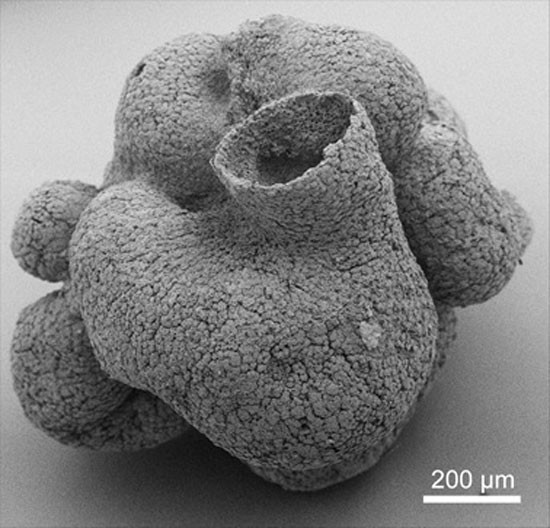600 million-year-old sponge-like fossil sheds light on life before the Cambrian explosion

A 600 million-year-old sponge-like fossil has been discovered with advanced characteristics, suggesting such creatures existed and had diversified on Earth before life really took off in the Cambrian explosion.
Publishing their findings in the Proceedings of the National Academy of Sciences, experts found a sponge-like fossil from 60 million years before the onset of the Cambrian period (which began around 541 million years ago).
It displayed multiple characteristics of modern sponges, including punctuated small pores on its external surface. This, among other features, suggests the species had diversified from an earlier common ancestor of sponges – and that other similarly advanced lifeforms are likely to be found in the future.
The researchers, from the Nanjing Institute of Geology and Palaeontology, Chinese Academy of Sciences, noted that previous studies have suggested sponges and all other major animal groups may have had a shared common ancestor over 200 years before the Cambrian period, but that fossil evidence of such an ancestor has remained elusive.
In the study, the authors said that because the fossil sponge cannot be assigned to any of the existing sponge classes, but displays characteristics among modern sponge classes "it is to be regarded as a stem group descendant of the common ancestor of all sponges".
Speaking to IBTimes UK, lead author Maoyan Zhu said the finding indicates that animals on Earth began diversifying in this time. He said they were surprised at how advanced the fossil appears – but that more evidence is needed to confirm their research.
The authors said in statement: "Discovery of additional specimens would confirm that the fossil represents a Precambrian sponge, but features of the fossil are consistent with sponge anatomy, including a basal anchor similar to a sponge holdfast and orifices for water inflow and outflow.
"The results suggest that advanced forms of sponges were likely extant 60 million years before the Cambrian period, and that fossils of similarly advanced eumetazoans [all major animal groups except sponges] may yet lie in the fossil record."
Zhu said they have a number of other specimens in the lab to analyse, but that it is time consuming work: "More fossils from this period can be found and we will keep trying," he said.
"We are excited to discover other types of animals from this time."
© Copyright IBTimes 2025. All rights reserved.






















